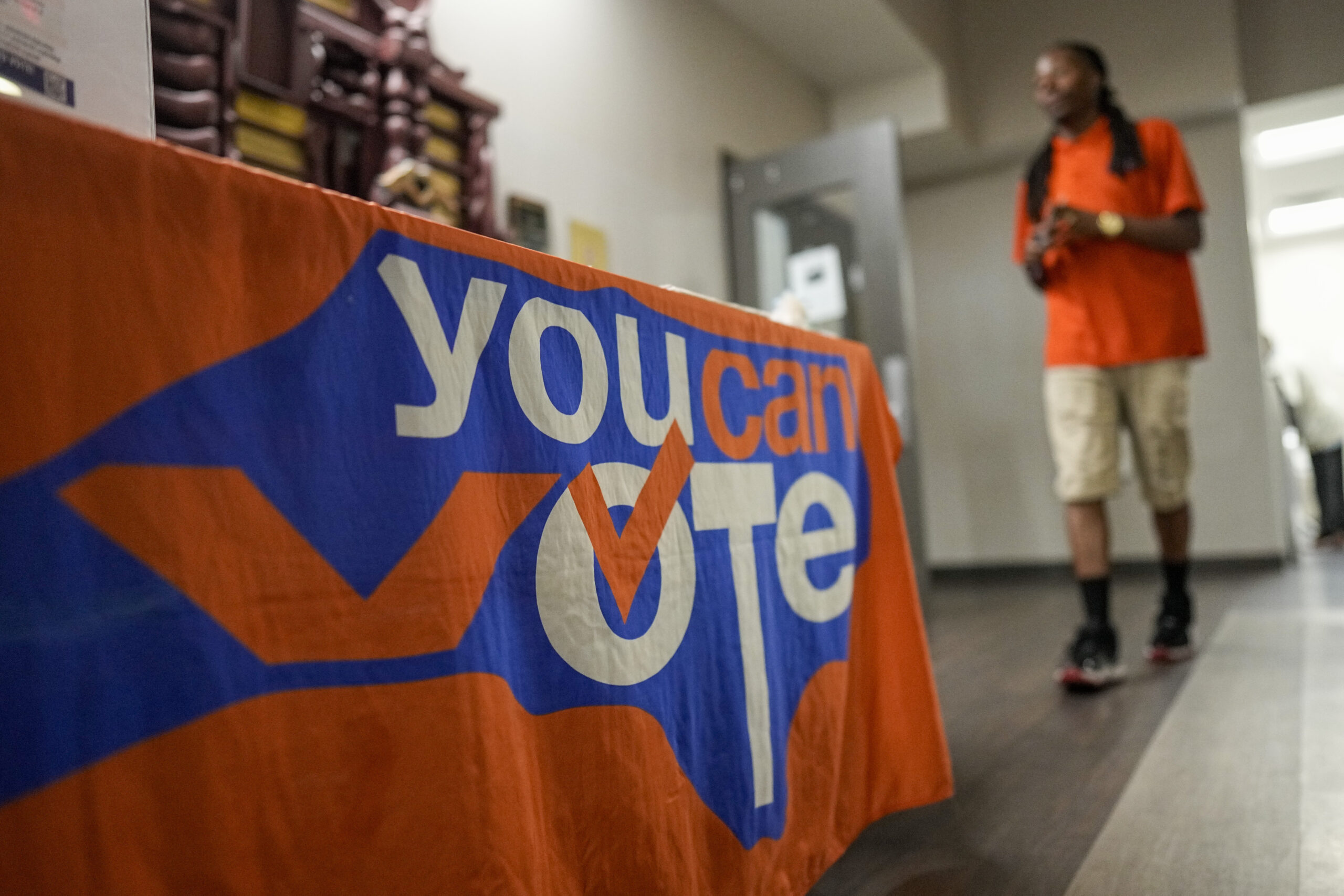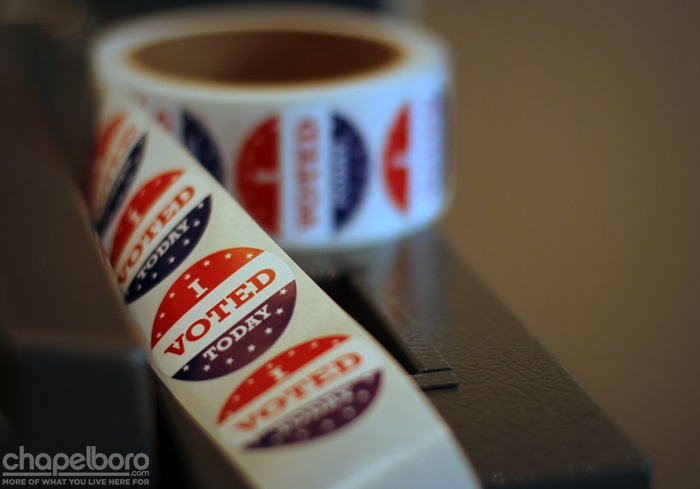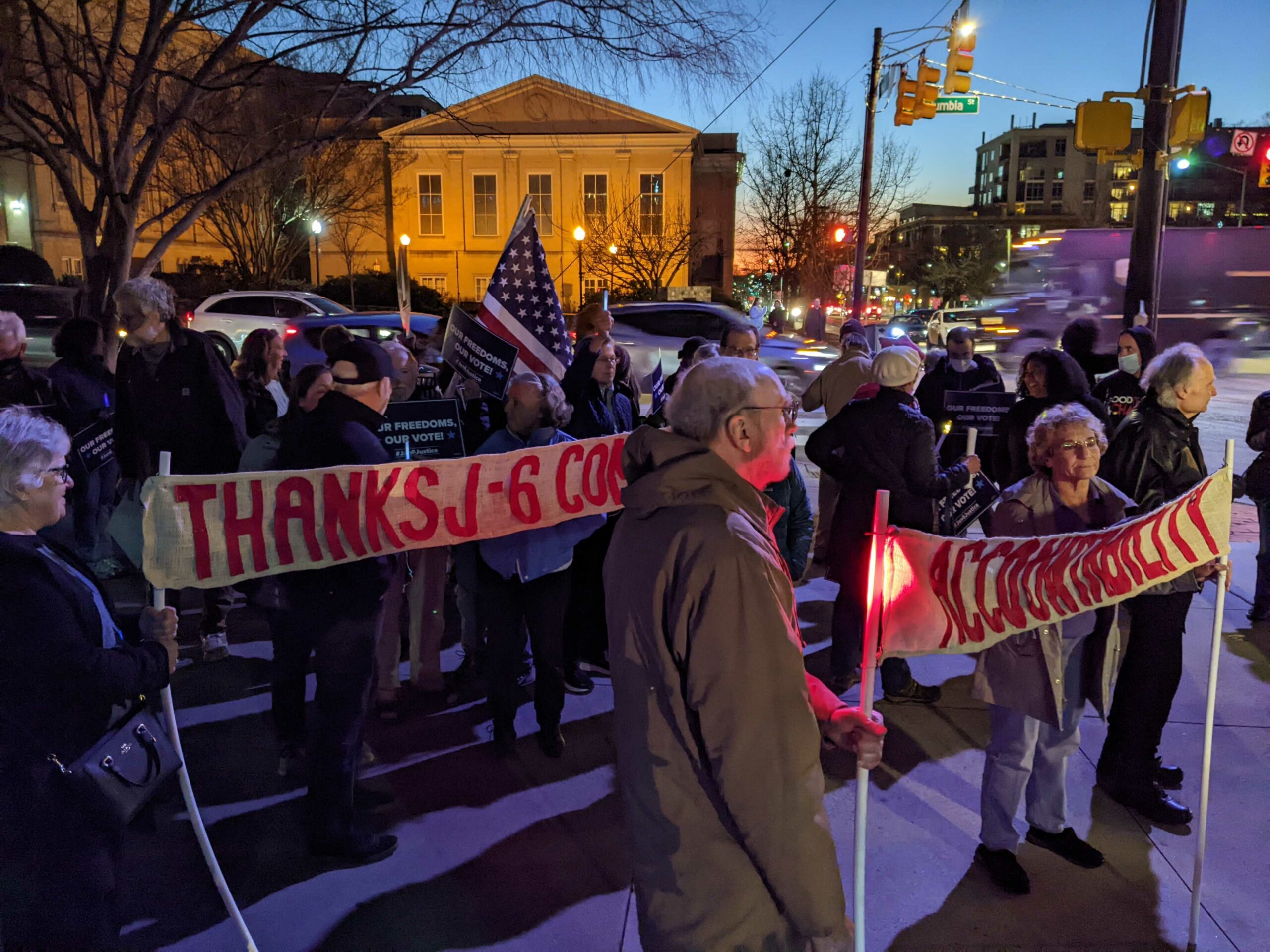A Chapel Hill attorney representing plaintiffs in a lawsuit against new voting restrictions told WCHL that he’s confident that his side presented a strong case in court last week.
“The Supreme Court acted, the North Carolina legislature followed it with really discriminatory voting laws, and so we took up the challenge and went to court.”
That’s Chapel Hill attorney Adam Stein. He’s been practicing law for about 45 years, specializing in civil rights cases.
Stein, along with several other attorneys, social justice groups, and plaintiffs were in federal court in Winston-Salem last week, suing the state of North Carolina over new voting requirements.
Plaintiffs argue that the new rules are discriminatory, and the U.S. Justice department is supporting the lawsuit.
Stein is part of a group of attorneys representing the NAACP, and individuals including the lead plaintiff, 93-year-old Rosanell Eaton of Franklin County.
Eaton, an African American, testified what it was like for her to register to vote when she was 21 years old.
It was dangerous for her and others back then, and people were afraid.
“She was required to stand straight up, put her hands at her sides, and recite the Preamble to the Constitution of the United States,” said Stein. “And she did that, and she registered, and she’s been working to get other African Americans registered to vote, and get them to vote for all these many years since then.”
Stein said that almost everybody agrees that there is a history of voter suppression of African-Americans in North Carolina.
As a result, voting by African Americans lagged behind that of white people in North Carolina for many years, until laws were passed that allowed early voting, same-day registration, and out-of-precinct voting.
“In 1988, we were near the bottom, nationally, in terms of participation of African Americans in voting,” said Stein. “And by 2012, we were 11th.”
According to Stein, African American participation, for the first time, had equaled, and even surpassed white participation.
Last year, the Republican-led North Carolina General Assembly repealed all of those voting conveniences.
“There was a highly disproportionate effect on African-American voters by removing all these measures,” said Stein. “And our argument, of course, was that that was a violation of the federal Voting Rights Act, and was a violation of the 14th Amendment.”
The state government also cut the early-voting period from 17 days down to 10. And beginning 2016, voters will be required to show state-issued IDs at the polls.
Stein pointed out that all of the new voting laws were passed by the General Assembly immediately after the Supreme Court’s 5-4 ruling in the case of Shelby County vs. Holder.
The ruling gutted two sections of the Voting Rights Act: Section 5, which states that certain state and local governments with a history of discriminatory voting practices must obtain federal clearance before implementing changes to voting laws; and Section 4(b), which states the formula that determines who is subject to that scrutiny.
While that ruling is devastating to civil rights advocates, Stein said there is still enough left of the Voting Rights Act to use in a fight.
“Section Two of the Voting Rights Acts doesn’t requite proof of intent,” said Stein. “It is sufficient to prove that the effects of what they’ve done burden African Americans disproportionately.”
Stein said he thinks his side proved both ill intent and disproportionate effects. U.S. District Judge Thomas D. Schroeder is expected to decide in a month or more whether to block the new voting rules before the November elections.
A full trial is scheduled for next July.







Comments on Chapelboro are moderated according to our Community Guidelines